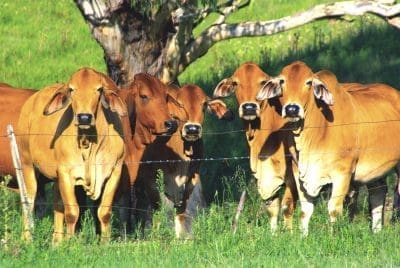
WITH weaning occurring throughout Queensland, beef producers in ticky nation are being inspired to vaccinate their cattle for tick fever.
Final 12 months noticed tick fever incidence under-reported in lots of areas, Beef Central was informed this morning.

Grazing Australian beef cattle
“For no matter purpose, some producers don’t appear to be vaccinating like they used to,” a veteran Central Queensland animal well being contact stated.
‘As soon as Bos Indicus had been adopted, there was typically much less tick about, lowering the background inhabitants, and due to this fact the chance,” he stated.
“However with some beef producers in ticky nation now breeding in direction of much less tailored British breeds and Wagyu varieties in response to meat high quality market alerts, extra naïve and inclined cattle could also be current than a number of years in the past.”
Division of Agriculture beef extension officer Lara Landsberg stated tick fever, brought on by three blood parasites, was answerable for many preventable cattle losses annually.
“Losses happen when cattle are moved from tick-free to ticky nation, and in unvaccinated cattle within the ticky nation,” Ms Landsberg stated.
The parasites infect and destroy pink blood cells, leading to vital mortalities and well being issues – together with weight reduction, lowered bull fertility, lactation points and being pregnant problems, she stated.
Younger cattle three to 9 months of age have an age-related resistance to the tick fever illness. Subsequently, weaning is the best time to vaccinate cattle – not solely from the animal’s place, but in addition from a administration perspective as they’re already being dealt with within the yards. Vaccination reactions are additionally a lot much less probably in younger animals.
Ms Landsberg stated it took 60 days for vaccinated cattle to develop immunity to Anaplasma marginale, and 28 days to develop immunity to Babesia bovis and Babesia bigemina.
Due to the time required to develop immunity, cattle from tick-free areas needs to be vaccinated 60 days earlier than being moved, she stated.
“A typical observe is to vaccinate weaners the day they’re being turned out from the yards. Ideally cattle usually are not dealt with and transported throughout the potential response interval.”
The potential vaccine response durations are:
- Babesia bovis: 5 to 14 days
- Babesia bigemina: 8 to 21 days
- Anaplasma marginale: 30 to 60 days.
“Usually a single dose supplies lifetime immunity, however vaccination with two doses could also be advisable when shifting beneficial naïve cattle like bulls to ticky nation,” Ms Landsberg stated.
For data on ticks or tick administration, go to the TickBoss website or contact your local beef extension officer.
Supply: DAF
Trending Merchandise










